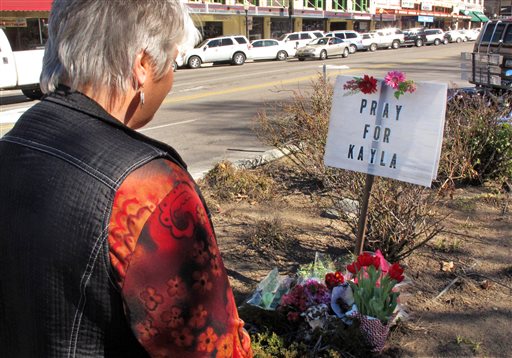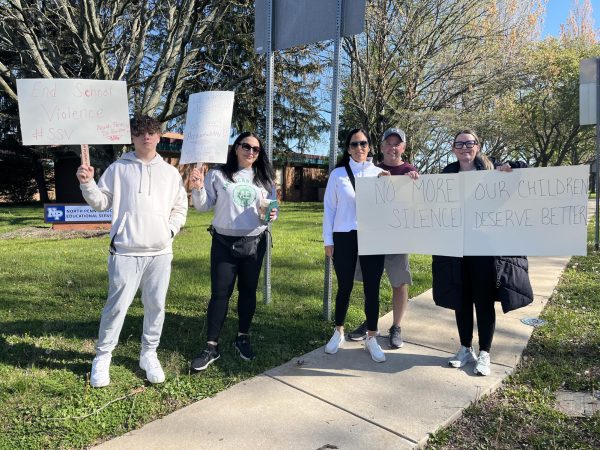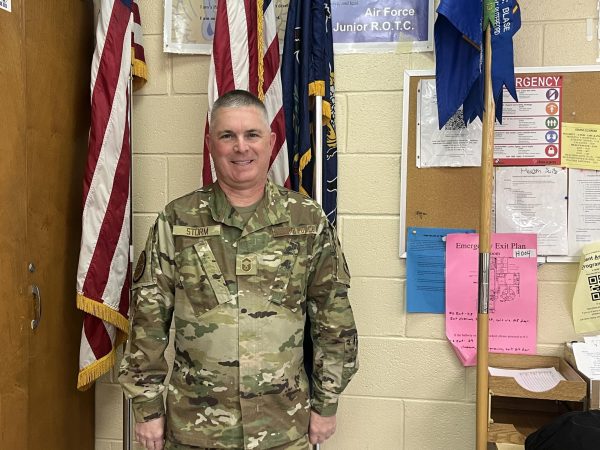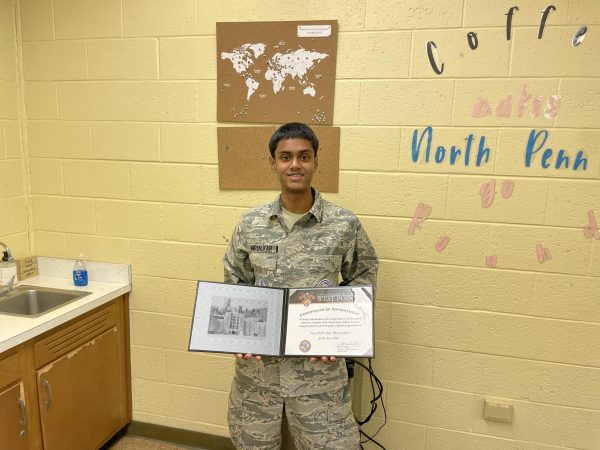Examining the complexities in dealing with ISIS

Laura Spaeth looks at a memorial honoring American hostage Kayla Mueller on the corner of courthouse plaza in Prescott, Ariz., Tuesday, Feb. 10, 2015. Islamic State group reported Friday that Muller, whose 18-month captivity had largely been kept secret in an effort to save her, had died in a recent Jordanian airstrike targeting the militants. On Tuesday her parents and U.S. officials confirmed she was dead, although officials said they could not confirm how she died. (AP Photo/Felicia Fonseca)
February 19, 2015
ISIS is one of the most prominent terror groups for a reason–its brutal, merciless tactics terrorize even those who are not involved. After a series of barbaric murders of ISIS’s international hostages, the United States mourns for 26 year old hostage, Kayla Mueller, whose parents confirmed her dead last Tuesday after private communication with ISIS.
Terrorism is an extremely difficult topic to handle since it is something that is nearly impossible to eliminate in a world with vastly different cultures, religions, governments, and other ways of living. Such differences have sparked resentment in some people, and the actions of resulting terror groups are horrifying.
In some cases, ISIS works to negotiate with different countries, demanding large sums of money in return for the lives of hostages. For instance, in late January, ISIS demanded a ransom of 200 million dollars within 72 hours in order for the safe return of two male Japanese hostages.
Governments strive to do anything they can to save lives of their citizens in most situations, but in this case, Japan could not agree to pay the ransom.
Life is priceless. For these threatened countries like Japan, it is not a question of how much money a life is worth. However, if Japan agreed to pay ISIS the requested 200 million dollars, ISIS would have succeeded in their intentions. Perhaps the terror group does not even need that money, but success would have shown that the group has the power to manipulate and control a world leading country such as Japan.
After deciding that it could not negotiate with the terror group, Japan mourned for the two hostages who were consequently beheaded by ISIS.
In other cases, ISIS has demanded other things in return for the lives of its hostages. Shortly after the situation with Japan, a Jordanian fighter pilot of great rank in his country was held hostage by ISIS after he ejected from his crashing plane. Jordan was willing to speak with ISIS of a negotiation to save the pilot, which consisted of a swap between the Jordanian pilot and Sajida al-Rishawi, an Iraqi woman who attempted a suicide bombing.
Despite Jordan’s consideration of the offer, ISIS sent a video to the country showing the terrible murder of the young pilot. Grief stricken-Jordan’s first act of retaliation was to carry out the execution of two terrorists tied to al Queda, including al-Rishawi, the woman that ISIS requested that Jordan release.
Though many Arabs are very hesitant to work with Americans, Jordan will likely join the US-led coalition against ISIS in response to the pilot’s murder. Some who supported ISIS prior to the release of the video of the burning of the young Jordanian pilot have now turned their backs on the terrorist group.
Despite the terror group’s growing list of cruel murders, ISIS blames Kayla Mueller’s death on Jordanian airstrikes. It has no proof of its claims, but even if that were the case, Americans still blame ISIS for the tragedy.
“This was, after all, the organization that was holding her against her will. That means they were responsible for her safety and well-being, and they are therefore responsible for her death,” said White House spokesman Josh Earnest regarding ISIS’s involvement in her death.
Regardless of the true cause of Mueller’s death, ISIS is generally responsible for the death of her and many other international hostages. The path that the US-led coalition and other forces against ISIS are taking is unclear, but one thing is certain–we must not succumb to ISIS’s terror tactics.
Negotiating with ISIS is the last path that should be considered, because allowing ISIS to manipulate the US government and other nations who are in the coalition will perhaps save one life but will also lead to a stronger terror group that could potentially take many more lives. Paying large ransoms and exchanging captured terrorists will only strengthen ISIS. Ransoms may be used to purchase more destructive equipment and weapons, and the return of captured terrorists increases the group’s size and strength.
Even though those involved in the coalition against the terror group will do all they can to save lives, they must also prevent ISIS from gaining more power so that eventually, the group may be weakened and eradicated. Negotiating with ISIS will lead us in the opposite direction.



















